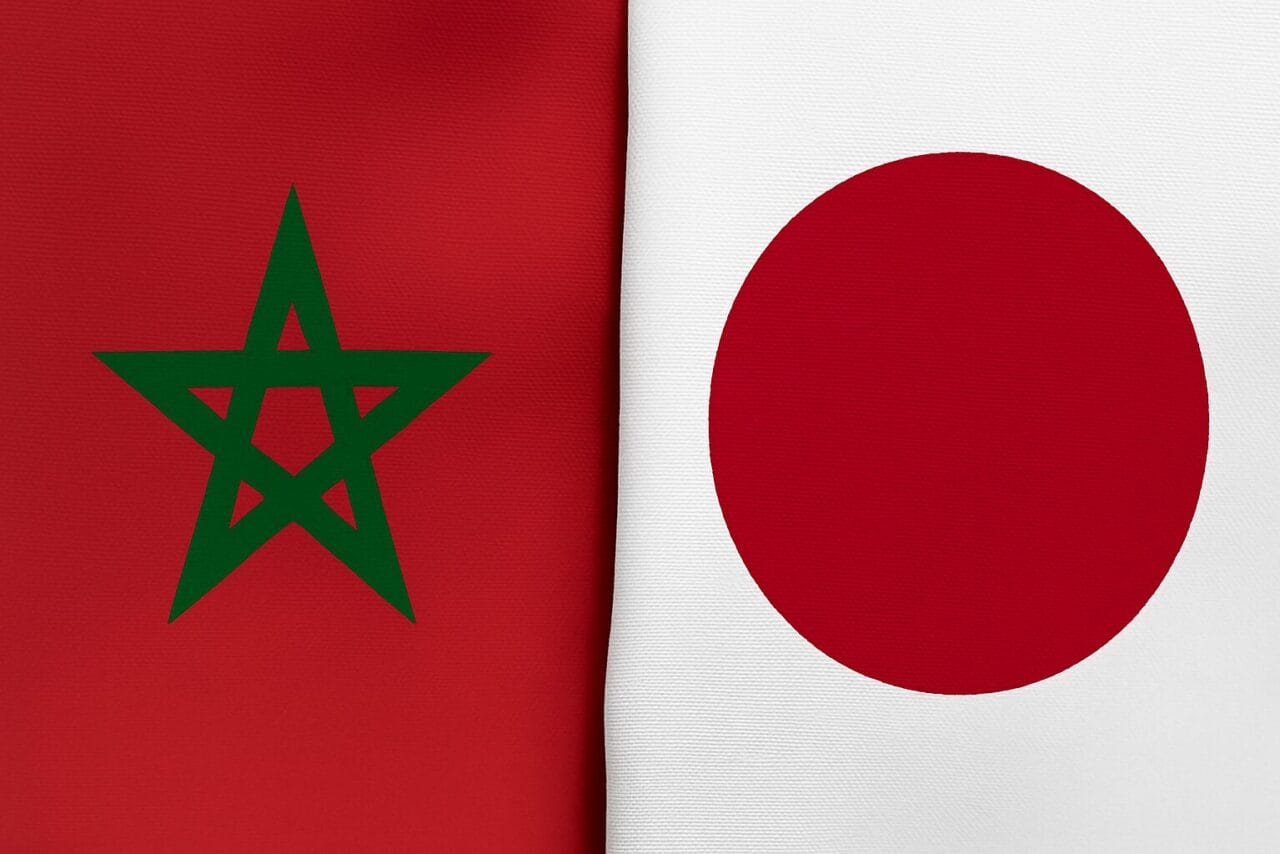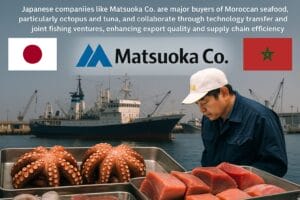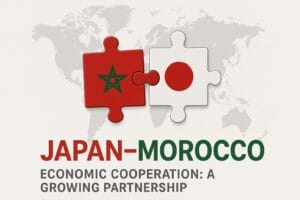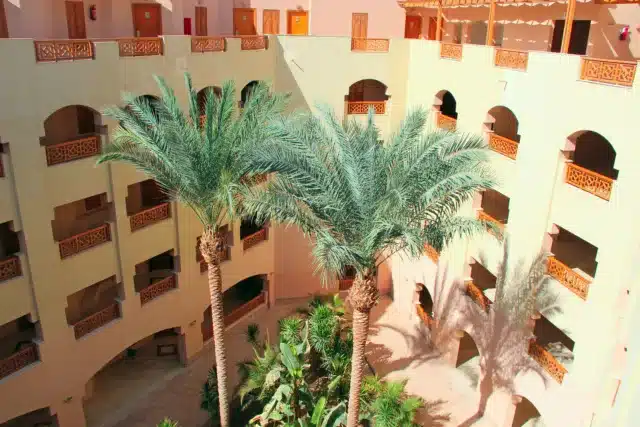
Unlocking Opportunity: The New Era of Japan–Morocco Investment
The economic relationship between Japan-Morocco has evolved into one of the most dynamic partnerships in Africa, marked by robust trade, significant investment, and a shared vision for sustainable development. As Marrakech solidifies its status as a luxury real estate destination, understanding the broader context of Japanese investment and sectoral cooperation offers valuable insights for investors and stakeholders in Morocco’s thriving property market.
Key Sectors of Cooperation
Japan is currently the largest foreign direct investor and private employer in Morocco, with more than 75 Japanese companies operating in the Kingdom. These firms collectively employ over 50,000 people, making Japan a critical partner in Morocco’s industrial and economic landscape. The sectors attracting the most Japanese investment include:
- Automotive Manufacturing: Japanese giants such as Sumitomo, Yazaki, and Fujikura have established major operations in Morocco, particularly in the production of wire harnesses and automotive parts. These companies alone employ around 30,000 people.
- Renewable Energy: With Morocco’s ambitious green energy targets, Japanese firms are investing in solar and wind projects. Mitsubishi Power, Sumitomo Electric Industries, Ltd. and more are supporting Morocco’s emergence as a regional leader in renewables.
- Aerospace and Advanced Manufacturing: Japanese expertise is increasingly present in Morocco’s growing aerospace sector, Kansai Aerospace Technologies Co. and Mitsubishi Heavy Industries (MHI) with a focus on parts manufacturing and technology transfer.
- Agribusiness and Fertilizers: Japan relies on Morocco for 20% of its fertilizer imports, highlighting strong agricultural trade ties. Mitsui & Co., Ltd. is a key Japanese investor in Moroccan agribusiness. Since 2018, Mitsui has invested over $60 million in the Moroccan poultry company Zalar Holding
- Banking and Finance: Partnerships between Japanese and Moroccan banks, such as Mizhu Bank with Attijariwafa Bank, facilitate investment flows and support Japanese companies expanding across Africa.
- Fishing Industry: Dakhla and Larache are strategic fishing hubs in Morocco, specializing in octopus (pulpe) and tuna (thon) fisheries respectively. The sector supports over 40,000 families and contributes significantly to Morocco’s economy, with a €30 million surplus in Dakhla alone (2024). Japanese companies like Matsuoka Co. are major buyers of Moroccan seafood, particularly octopus and tuna, and collaborate through technology transfer and joint fishing ventures, enhancing export quality and supply chain efficiency.

Japan-Morocco :ummary Table of Japanese Companies by Sector in Morocco
| Sector | Approximate % of Japanese Companies | Key Companies / Notes |
|---|---|---|
| Automotive | 70% – 75% | Sumitomo Wiring Systems, Yazaki, Fujikura, Denso |
| Renewable Energy | Emerging (5-10%) | Sumitomo Electric, Mitsui & Co., Mitsubishi Power |
| Aerospace & Manufacturing | Growing (5-10%) | Kansai Aerospace Technologies, Mitsubishi Heavy Industries |
| Agribusiness & Fertilizers | Moderate (5%) | Mitsui (Zalar Holding), fertilizer trade |
| Telecommunications / IT | Small but growing | NTT Data |
| Maritime / Shipping | Small but growing | Ocean Network Express joint ventures |
Trade Statistics and Japanese Presence
- In 2023, Japanese exports to Morocco totaled $461 million, with leading products including insulated wire, cars, and delivery trucks.
- Moroccan exports to Japan reached $310 million, primarily processed crustaceans, fish fillets, and fertilizers.
- Japanese direct investment in Morocco reached 37.5 billion dirhams in 2021, positioning Japan as the fifth-largest investor in the Kingdom.
- The number of Japanese companies in Morocco has nearly doubled in the past three years, reflecting growing confidence in Morocco’s stability and market potential.
Real Estate and Related Sectors
Morocco’s real estate sector is a major driver of economic growth, attracting substantial international investment, particularly in cities like Marrakech, Casablanca, and Agadir. The sector benefits from:
- Infrastructure Development: Ongoing investments in roads, airports, and public transit boost the attractiveness of real estate projects and support urbanization.
- Tourism: The luxury real estate market, especially in Marrakech, is closely linked to Morocco’s booming tourism industry, drawing foreign buyers and investors seeking vacation homes and hospitality assets.
- Japanese Interest: While direct Japanese investment in real estate is not as pronounced as in manufacturing or energy, the presence of Japanese companies and expatriates’ fuels demand for high-quality residential and commercial properties. Japanese firms’ involvement in infrastructure and urban development projects also indirectly supports the real estate sector.
The Moroccan real estate market is entering a period of robust growth and transformation. In 2025, the sector is projected to reach a value of $1.71 trillion, with the residential segment leading the way at $1.53 trillion. Demand continues to rise, especially in major cities like Marrakech, Casablanca, and Rabat, driven by urbanization, infrastructure development, and a steady influx of foreign investment. Government incentives, a stable economy, and new financing solutions are making property ownership more accessible than ever.
Japan-Morocco :Future Opportunities in Real Estate

With the launch of the “Morocco Now” initiative, Morocco is positioning itself as an attractive destination for foreign investment-including in the real estate sector. This strategy is paving the way for international players, including Japanese companies, to explore promising opportunities in residential development, tourism infrastructure, and industrial zones. As Morocco continues to modernize and open its market, the real estate sector is set for dynamic growth-making now the ideal time to invest and benefit from the country’s upward momentum
Luxury and high-end properties, particularly in Marrakech, are attracting both local and international buyers, while new neighborhoods and sustainable projects offer fresh opportunities for savvy investors. With property prices expected to rise moderately and the market supported by strong fundamentals, now is the ideal time to invest in Moroccan real estate.
Don’t miss out on the opportunities in this booming market, discover the best luxury properties in Marrakech on our website and take the next step toward your investment goals.



Leave a Reply